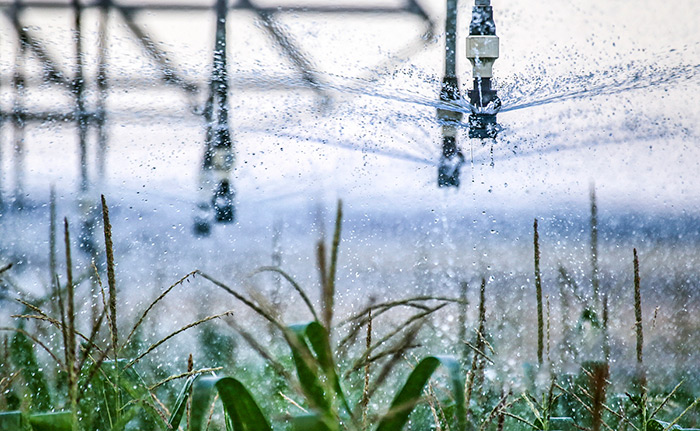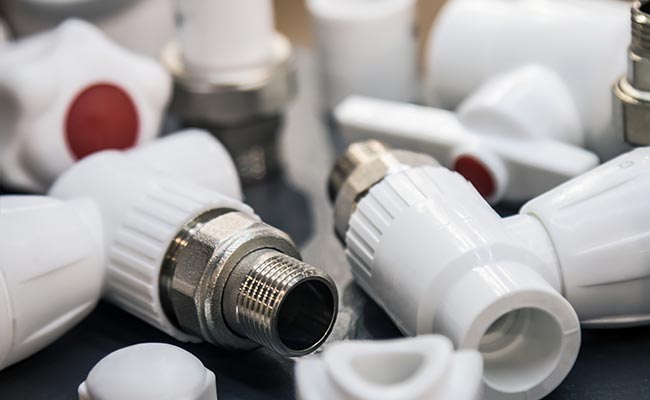คุณกำลังติดตั้งท่อน้ำและต้องการวาล์ว แต่การใช้วาล์วที่ผิดประเภทอาจทำให้เกิดการกัดกร่อน รั่วซึม หรือสิ้นเปลืองเงินมากเกินไปกับวาล์วที่เกินความจำเป็น
วาล์วบอล PVC มักใช้สำหรับควบคุมการเปิด/ปิดในระบบประปาน้ำเย็นและระบบจัดการของเหลว การใช้งานที่พบบ่อยที่สุดคือในระบบชลประทาน สระว่ายน้ำและสปา การเพาะเลี้ยงสัตว์น้ำ และท่อน้ำทั่วไปที่จำเป็นต้องทนทานต่อการกัดกร่อน
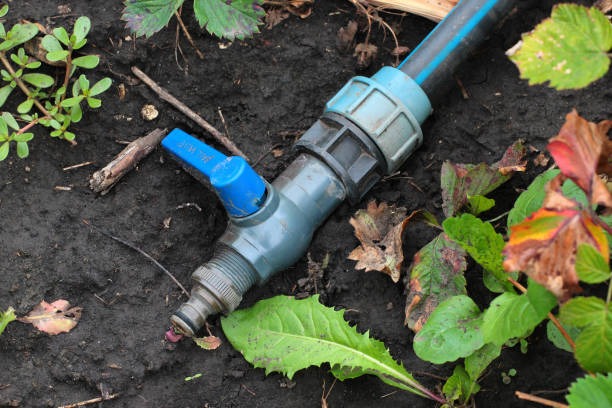
ผมมักได้รับคำถามนี้จากหุ้นส่วนอย่างบูดี ผู้จัดการฝ่ายจัดซื้อในอินโดนีเซีย เมื่อเขาฝึกอบรมพนักงานขายใหม่ สิ่งแรกๆ อย่างหนึ่งที่พวกเขาต้องเรียนรู้ไม่ใช่แค่การเล่าคุณสมบัติของผลิตภัณฑ์ แต่คือการทำความเข้าใจงานของลูกค้า ลูกค้าไม่ได้ต้องการแค่วาล์ว แต่พวกเขาต้องการควบคุมน้ำอย่างปลอดภัยและเชื่อถือได้ บอลวาล์ว PVC ไม่ใช่แค่พลาสติกชิ้นหนึ่ง แต่มันคือประตูรั้ว การเข้าใจว่าใช้ที่ไหนและทำไมจึงใช้ ช่วยให้ทีมของเขาสามารถนำเสนอโซลูชันที่แท้จริง ไม่ใช่แค่ขายอะไหล่ สิ่งสำคัญคือการเลือกเครื่องมือที่เหมาะสมกับงาน และวาล์วเหล่านี้มีชุดงานเฉพาะที่ทำงานได้อย่างสมบูรณ์แบบ
บอลวาล์ว PVC มีไว้ใช้ทำอะไร?
คุณคงเคยเห็นวาล์ว PVC ใช้งานกันทั่วไป ตั้งแต่ฟาร์มไปจนถึงสวนหลังบ้าน แต่อะไรที่ทำให้วาล์ว PVC เป็นตัวเลือกที่ถูกต้องสำหรับงานเหล่านี้ แต่กลับเป็นตัวเลือกที่ผิดสำหรับงานอื่นๆ? มันสำคัญ
วาล์วบอล PVC ถูกใช้โดยเฉพาะเพื่อควบคุมการไหลของระบบน้ำเย็น การใช้งานหลักๆ ได้แก่ ระบบชลประทาน ระบบประปาสระว่ายน้ำ การเพาะเลี้ยงสัตว์น้ำ ระบบอะควาโปนิกส์ และระบบประปาเชิงพาณิชย์หรือที่อยู่อาศัยขนาดเล็กที่มีปัญหาเรื่องสนิมและการกัดกร่อนทางเคมี
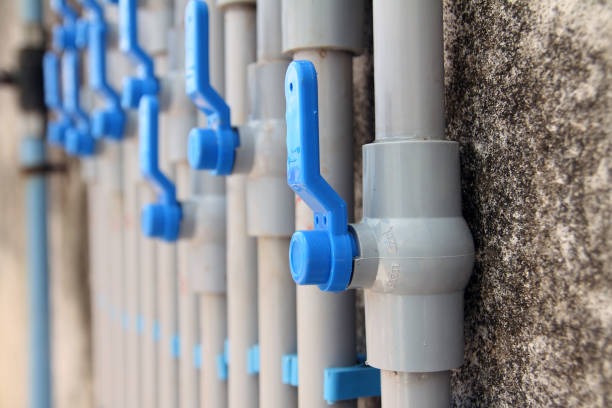
มาดูกันว่าวาล์วเหล่านี้มีจุดเด่นตรงไหนการชลประทานพวกมันทำหน้าที่เป็นตัวปิดสำหรับท่อหลักหรือควบคุมโซนการให้น้ำต่างๆ พวกมันนอนอยู่บนดินและสัมผัสกับน้ำและปุ๋ยอยู่ตลอดเวลา ซึ่งเป็นสภาพแวดล้อมที่อาจทำลายวาล์วโลหะส่วนใหญ่ได้ แต่ PVC ไม่ได้รับผลกระทบใดๆ เลยสระว่ายน้ำและสปาน้ำจะถูกบำบัดด้วยคลอรีนหรือเกลือ พีวีซีเป็นมาตรฐานอุตสาหกรรมสำหรับปั๊มและตัวกรองประปา เนื่องจากทนทานต่อการกัดกร่อนทางเคมีนี้อย่างสมบูรณ์ เช่นเดียวกับการเพาะเลี้ยงสัตว์น้ำ ซึ่งพีวีซีควบคุมการไหลของน้ำสำหรับการเพาะเลี้ยงปลาและกุ้ง สำหรับงานประปาทั่วไป พีวีซีเป็นตัวเลือกที่ยอดเยี่ยมและประหยัดสำหรับท่อน้ำเย็นทุกประเภท เช่น ระบบสปริงเกอร์ หรือใช้เป็นท่อปิดน้ำหลัก ในกรณีที่คุณต้องการวิธีที่เชื่อถือได้ในการหยุดการไหลของน้ำเพื่อการบำรุงรักษาหรือในกรณีฉุกเฉิน
การใช้งานทั่วไปสำหรับบอลวาล์ว PVC
| แอปพลิเคชัน | ทำไม PVC จึงเป็นตัวเลือกที่ดีที่สุด |
|---|---|
| การชลประทานและการเกษตร | ทนทานต่อการกัดกร่อนจากดิน น้ำ และปุ๋ย |
| สระว่ายน้ำ สปา และบ่อน้ำ | ไม่สามารถเสียหายได้จากคลอรีน น้ำเกลือ หรือการบำบัดอื่นๆ |
| การเพาะเลี้ยงสัตว์น้ำและพิพิธภัณฑ์สัตว์น้ำ | จัดการกับการไหลของน้ำอย่างต่อเนื่องอย่างปลอดภัยโดยไม่เสื่อมสภาพหรือชะล้างออกไป |
| งานประปาน้ำเย็นทั่วไป | ให้จุดปิดที่เชื่อถือได้ ป้องกันสนิม และราคาไม่แพง |
วาล์ว PVC มีวัตถุประสงค์อะไร?
คุณมีน้ำไหลผ่านท่อ แต่คุณไม่มีทางหยุดมันได้ การขาดการควบคุมนี้ทำให้การซ่อมแซมหรือบำรุงรักษาเป็นไปไม่ได้และมีความเสี่ยง วาล์วง่ายๆ ช่วยแก้ไขปัญหานี้ได้
วัตถุประสงค์หลักของวาล์ว PVC คือการให้จุดควบคุมที่เชื่อถือได้และทนทานในระบบของไหล ช่วยให้คุณสามารถเริ่ม หยุด หรือบางครั้งควบคุมการไหลได้ โดยมีข้อดีหลักคือทนทานต่อการกัดกร่อนอย่างสมบูรณ์
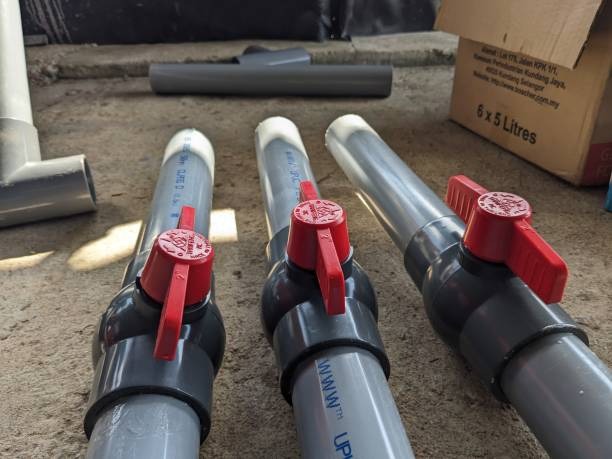
วัตถุประสงค์พื้นฐานของวาล์วคือการควบคุม และวาล์ว PVC ก็ให้การควบคุมเฉพาะอย่างหนึ่ง วัตถุประสงค์หลักของวาล์วคือการแยกตัวลองนึกภาพหัวสปริงเกอร์แตกในสวนของคุณดูสิ หากไม่มีวาล์ว คุณคงต้องปิดน้ำทั้งบ้านเพื่อซ่อมมัน การติดตั้งบอลวาล์ว PVC บนท่อนั้นจะช่วยให้คุณแยกเฉพาะส่วนนั้น ซ่อมแซม และเปิดน้ำกลับมาใช้งานได้อีกครั้ง ซึ่งเป็นสิ่งสำคัญอย่างยิ่งสำหรับการบำรุงรักษาทุกประเภท อีกวัตถุประสงค์หนึ่งคือการเบี่ยงเบนการใช้บอลวาล์ว 3 ทางช่วยให้คุณสามารถควบคุมทิศทางการไหลจากแหล่งเดียวไปยังสองตำแหน่งที่แตกต่างกันได้ เช่น การสลับระหว่างสองโซนชลประทานที่แตกต่างกัน นอกจากนี้ วัสดุ PVC เองยังมีประโยชน์ดังนี้:อายุยืนยาวทำหน้าที่ควบคุมน้ำโดยไม่เกิดสนิมหรือกัดกร่อน มั่นใจได้ว่าจะทำงานได้เมื่อคุณต้องการเป็นเวลาหลายปี นั่นคือจุดประสงค์ที่แท้จริงของมัน: การควบคุมที่เชื่อถือได้และใช้งานได้ยาวนาน
จุดประสงค์หลักของบอลวาล์วคืออะไร?
คุณต้องปิดท่อน้ำอย่างรวดเร็วและมั่นใจที่สุด วาล์วที่หมุนช้าและต้องหมุนหลายรอบอาจทำให้คุณสงสัยว่าวาล์วปิดสนิทจริงหรือไม่
วัตถุประสงค์หลักของบอลวาล์วคือการควบคุมการเปิด/ปิดที่รวดเร็วและเชื่อถือได้ การออกแบบที่เรียบง่ายเพียงหมุนหนึ่งในสี่รอบช่วยให้สามารถใช้งานได้ทันที และตำแหน่งของด้ามจับช่วยให้มองเห็นได้ชัดเจนยิ่งขึ้นว่าเปิดหรือปิดอยู่
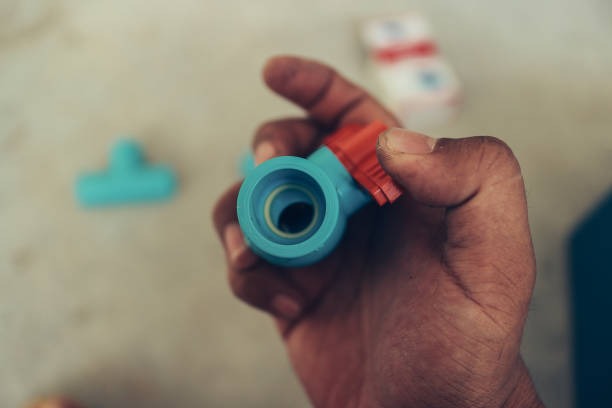
ความอัจฉริยะของบอลวาล์วอยู่ที่ความเรียบง่าย ภายในวาล์วมีลูกบอลที่มีรูเจาะทะลุโดยตรง เมื่อด้ามจับขนานกับท่อ รูจะอยู่ในแนวเดียวกับการไหล และวาล์วจะเปิดออกเต็มที่ เมื่อหมุนด้ามจับ 90 องศา ลูกบอลจะตั้งฉากกับท่อ การหมุนนี้จะทำให้ลูกบอลหมุนจนส่วนที่เป็นของแข็งปิดกั้นการไหล และหยุดการไหลทันที การออกแบบนี้มอบประโยชน์สำคัญสองประการที่กำหนดวัตถุประสงค์ของวาล์ว ประการแรกคือความเร็วคุณสามารถเปลี่ยนจากเปิดเต็มที่เป็นปิดเต็มที่ได้ภายในเสี้ยววินาที ซึ่งเป็นสิ่งสำคัญสำหรับการปิดฉุกเฉิน ประการที่สองคือความชัดเจนแค่ดูที่ด้ามจับก็รู้สภาพวาล์วแล้ว ไม่ต้องเดาเลย ผมมักจะบอกบูดี้ว่าให้ขายอุปกรณ์นี้ในฐานะอุปกรณ์นิรภัย บอลวาล์วช่วยให้คุณรู้แน่ชัดว่าน้ำเปิดหรือปิดอยู่
ความแตกต่างระหว่างบอลวาล์วทองเหลืองกับบอลวาล์ว PVC คืออะไร?
คุณต้องการบอลวาล์ว แต่เห็นวาล์วทองเหลืองกับวาล์วพีวีซี หน้าตาต่างกันมากและราคาต่างกันมาก การเลือกแบบผิดอาจทำให้วาล์วเสียหายได้
ความแตกต่างที่สำคัญอยู่ที่คุณสมบัติของวัสดุและกรณีการใช้งานที่เหมาะสม พีวีซีมีน้ำหนักเบา ทนต่อการกัดกร่อน และเหมาะสำหรับน้ำเย็น ทองเหลืองมีความแข็งแรงกว่ามาก ทนความร้อนและแรงดันสูงได้ แต่อาจเกิดการกัดกร่อนได้ในบางสภาวะ
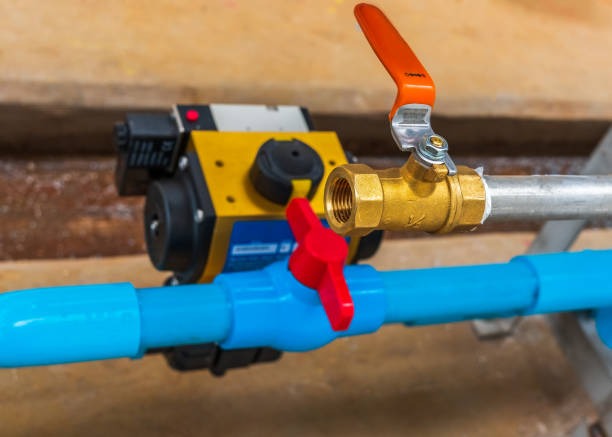
เมื่อผมอธิบายเรื่องนี้ให้บูดีฟังสำหรับทีมของเขา ผมแบ่งมันออกเป็นสี่ประเด็นหลัก ประการแรกคือความต้านทานการกัดกร่อนในกรณีนี้ PVC คือแชมป์ที่ไม่มีใครโต้แย้งได้ มันเป็นพลาสติกชนิดหนึ่ง ดังนั้นจึงไม่เป็นสนิม ทองเหลืองเป็นโลหะผสมที่อาจอ่อนตัวลงเมื่อได้รับสารเคมีบางชนิดในน้ำเมื่อเวลาผ่านไป ประการที่สองคืออุณหภูมิและความดันในกรณีนี้ ทองเหลืองชนะอย่างง่ายดาย ทองเหลืองสามารถทนต่อน้ำร้อนและแรงดันสูงได้ ในขณะที่พีวีซีมาตรฐานใช้ได้กับน้ำเย็น (ต่ำกว่า 60°C / 140°F) และแรงดันต่ำกว่าเท่านั้น ประการที่สามคือความแข็งแกร่งทองเหลืองเป็นโลหะและมีความทนทานต่อแรงกระแทกมากกว่ามาก คุณคงไม่ต้องการใช้ PVC สำหรับท่อก๊าซธรรมชาติด้วยเหตุผลนี้ ประการที่สี่คือค่าใช้จ่าย. พีวีซีมีน้ำหนักเบากว่ามากและราคาถูกกว่ามาก จึงเป็นทางเลือกที่ประหยัดกว่าสำหรับโครงการขนาดใหญ่ การเลือกที่ถูกต้องขึ้นอยู่กับลักษณะงานเป็นหลัก
PVC เทียบกับทองเหลือง: ความแตกต่างที่สำคัญ
| คุณสมบัติ | บอลวาล์วพีวีซี | วาล์วบอลทองเหลือง |
|---|---|---|
| ดีที่สุดสำหรับ | น้ำเย็น ของเหลวที่กัดกร่อน | น้ำร้อนแรงดันสูง แก๊ส |
| อุณหภูมิ | ต่ำ (< 60°C / 140°F) | สูง (> 93°C / 200°F) |
| การกัดกร่อน | ความต้านทานที่ยอดเยี่ยม | ดีแต่สามารถกัดกร่อนได้ |
| ค่าใช้จ่าย | ต่ำ | สูง |
บทสรุป
บอลวาล์วพีวีซีใช้สำหรับควบคุมการเปิด/ปิดระบบน้ำเย็นได้อย่างน่าเชื่อถือ เหมาะอย่างยิ่งสำหรับการใช้งาน เช่น ระบบชลประทานและสระว่ายน้ำ ซึ่งคุณสมบัติป้องกันการกัดกร่อนทำให้เป็นตัวเลือกที่เหนือกว่า
เวลาโพสต์: 16 ก.ค. 2568


